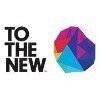Top 40 MongoDB Interview Questions and Answers
Updated 9 Jul 2025

Asked in SMFG India Credit

Q. What is the difference between normal collection and bucket collection?
Bucket collection is a specialized form of collection where delinquent accounts are grouped into buckets based on their age or severity.
Normal collection involves the process of collecting outstanding payments from customers.
Bucket collection categor...read more
Asked in Trois Infotech

Q. Why would you use MongoDB instead of MySQL?
MongoDB is better suited for handling unstructured data and offers better scalability and performance compared to MySQL.
MongoDB is a NoSQL database that allows for flexible and dynamic schema design.
MongoDB is better suited for handling large amounts...read more

Asked in Unico Connect

Q. Given a collection of user details, write a MongoDB query to increase the age by 20% for documents where the age field exists.
Mongo query to increase age by 20% for documents with age field
Use $exists operator to filter documents with age field
Use $mul operator to increase age by 20%
Example: db.users.updateMany({ age: { $exists: true } }, { $mul: { age: 1.2 } })
Asked in Bonami Software

Q. Why would you choose Mongoose over the MongoDB driver?
Mongoose provides a higher-level abstraction over MongoDB, simplifying data modeling and validation.
Schema Definition: Mongoose allows defining schemas for data models, ensuring data consistency. Example: const userSchema = new mongoose.Schema({ name...read more

Asked in Wipro Infrastructure Engineering

Q. What are indexes in MongoDB?
Indexes in MongoDB enhance query performance by allowing faster data retrieval and efficient sorting.
Indexes are data structures that improve the speed of data retrieval operations.
MongoDB supports various index types: single field, compound, multi-k...read more

Asked in Aye Finance

Q. How many collections
The number of collections refers to the total number of outstanding debts that a loan adviser is responsible for managing.
Collections are typically categorized by the type of debt, such as credit card debt, student loans, or mortgages.
Loan advisers w...read more


Asked in Cloud4C

Q. What is indexing in MongoDB?
Indexing in MongoDB is a way to optimize queries by creating a data structure that improves search speed.
Indexes are created on specific fields in a collection
They can be created in ascending or descending order
Indexes can be compound, meaning they a...read more

Asked in Mckinley Rice

Q. What is the $shared operator in MongoDB?
The $shared operator in MongoDB is used to perform set intersection between arrays.
Used to find common elements between arrays
Returns an array containing elements that appear in all input arrays
Syntax: { $shared: { arrays: [
, , ... ] } } Example: { $...read more

Asked in Bosch

Q. What is the best way to save large files (e.g., photos) into a MongoDB database?
Use GridFS to save large files in MongoDB database.
GridFS is a specification for storing and retrieving large files in MongoDB.
It divides the file into smaller chunks and stores them as separate documents.
GridFS provides a way to query and retrieve t...read more

Asked in TO THE NEW

Q. Create a Dockerfile to make MongoDB available for developers.
Create a docker file to make mongodb available for developers
Use the official MongoDB Docker image as the base image
Expose the default MongoDB port (27017)
Set up any necessary environment variables or configurations
Build the Docker image using the Do...read more
MongoDB Jobs




Asked in Resmed

Q. Why MongoDB over SQL?
MongoDB is preferred over SQL for its flexibility, scalability, and ease of use in handling unstructured data.
MongoDB is a NoSQL database, making it easier to work with unstructured data compared to SQL.
MongoDB is schema-less, allowing for more flexi...read more
Asked in OMFYS Technologies

Q. How can we connect to MongoDB using Javascript?
To connect to MongoDB using Javascript, you can use the official MongoDB Node.js driver.
Install the MongoDB Node.js driver using npm: npm install mongodb
Require the MongoDB Node.js driver in your Javascript file: const MongoClient = require('mongodb'...read more

Asked in Greendeck

I was asked to solve MongoDB queries and determine the best way to execute them.
I was asked to write queries to retrieve specific data from MongoDB collections.
I used aggregation pipelines to perform complex queries involving multiple stages.
I optimi...read more

Asked in Codewave Technologies

Q. How do you create a MongoDB model?
Creating a MongoDB model in Node.js for data storage and retrieval.
Define a schema using Mongoose library
Create a model using the schema
Use the model to interact with the MongoDB database

Asked in Lincode Labs

Q. How can we optimize a MongoDB database?
Optimising MongoDB Database involves indexing, proper query optimization, sharding, and using the right data model.
Create indexes on fields frequently used in queries to improve query performance.
Use the explain() method to analyze and optimize query...read more

Asked in Infosys

Q. What is the MongoDB code to connect from a NodeJS backend?
To connect to MongoDB from NodeJS backend, use the 'mongodb' package and the 'MongoClient' class.
Install the 'mongodb' package using npm: npm install mongodb
Require the 'mongodb' package in your NodeJS file: const MongoClient = require('mongodb').Mon...read more

Asked in Unico Connect

Q. How does over-indexing affect MongoDB performance, and how can it be prevented?
Over-indexing in MongoDB can negatively impact performance by increasing memory usage and slowing down query execution.
Over-indexing can lead to increased memory usage as each index consumes memory.
Having too many indexes can slow down write operatio...read more

Asked in Ksolves India Limited

Q. How do you connect MongoDB with a database?
To connect MongoDB with a database, you need to use the MongoDB URI and a MongoDB client library.
Use the MongoDB URI to specify the connection details such as host, port, username, password, and database name
Install a MongoDB client library like Mong...read more

Asked in Siemens

Q. What are the differences between MongoDB and relational models?
MongoDB is a NoSQL database while the relational model is based on tables and SQL.
MongoDB is schema-less, allowing flexible and dynamic data structures.
Relational databases use a fixed schema with predefined tables and columns.
MongoDB uses a document...read more

Asked in SAP

Q. Comparing different databases such as mongodb, postgre etc
Different databases have their own strengths and weaknesses.
MongoDB is a NoSQL database that is great for handling unstructured data.
PostgreSQL is a relational database that is known for its stability and ACID compliance.
MySQL is a popular open-sourc...read more

Asked in Webskitters

Q. How do you fetch data from MongoDB?
To fetch data from MongoDB, use the find() method with optional query parameters.
Use the find() method to retrieve data from a MongoDB collection
You can pass query parameters to filter the results
Use the findOne() method to retrieve a single document

Asked in Unico Connect

Q. What are the key considerations when designing a database in MongoDB?
Key considerations include data modeling, indexing, sharding, and replication.
Consider the data model carefully to ensure it fits the application's needs.
Use indexing to improve query performance.
Plan for sharding to distribute data across multiple s...read more

Asked in PayPal

Q. How is MongoDB scalable?
MongoDB is scalable due to its ability to horizontally partition data across multiple servers.
MongoDB uses sharding to distribute data across multiple servers.
Sharding allows for horizontal scaling by adding more servers to the cluster.
MongoDB also s...read more

Asked in Devship

Q. Describe some CRUD operations in MongoDB.
CRUD operations in MongoDB include create, read, update, and delete operations on documents in a collection.
Create: db.collection.insertOne()
Read: db.collection.find()
Update: db.collection.updateOne()
Delete: db.collection.deleteOne()

Asked in iorta Technology Solutions

Q. How do you perform joins in MongoDB?
To join in MongoDB, you can use the $lookup aggregation stage to perform a left outer join between two collections.
Use the $lookup aggregation stage in MongoDB to join collections.
Specify the localField and foreignField to define the fields to join o...read more

Asked in Tech Mahindra

Q. How do you connect to MongoDB using code?
Connecting to MongoDB involves using a driver to establish a connection and perform database operations.
Install MongoDB driver: Use npm to install the MongoDB driver in Node.js: `npm install mongodb`.
Import the MongoDB client: In your code, import th...read more

Asked in Informatica

Q. What is the difference between MongoDB and Cassandra?
MongoDB is a document-oriented database while Cassandra is a column-family database.
MongoDB is better suited for complex queries and data modeling.
Cassandra is better for write-heavy workloads and high availability.
MongoDB has a flexible schema while...read more
Asked in Surveyaan

Q. How do you handle large datasets using MongoDB?
Handle large datasets in MongoDB by sharding, indexing, and using aggregation pipelines.
Use sharding to distribute data across multiple servers for horizontal scaling.
Create indexes on frequently queried fields to improve query performance.
Utilize ag...read more

Asked in Devship

Q. Why are $lookup, $project, etc. used?
They are used in MongoDB aggregation pipeline to perform various operations like joining, filtering, projecting, etc.
Used in MongoDB aggregation pipeline for data manipulation
Perform operations like joining, filtering, projecting, etc.
Help in combini...read more

Asked in Springworks

Aggregate operators in MongoDB are used for data aggregation and manipulation.
Some aggregate operators in MongoDB include $sum, $avg, $min, $max, $push, $addToSet, $first, $last, $project, $match, $group, $sort, $limit, $skip.
Example: db.collection.a...read more

Top Interview Questions for Related Skills
Interview Experiences of Popular Companies




Interview Questions of MongoDB Related Designations



Reviews
Interviews
Salaries
Users










